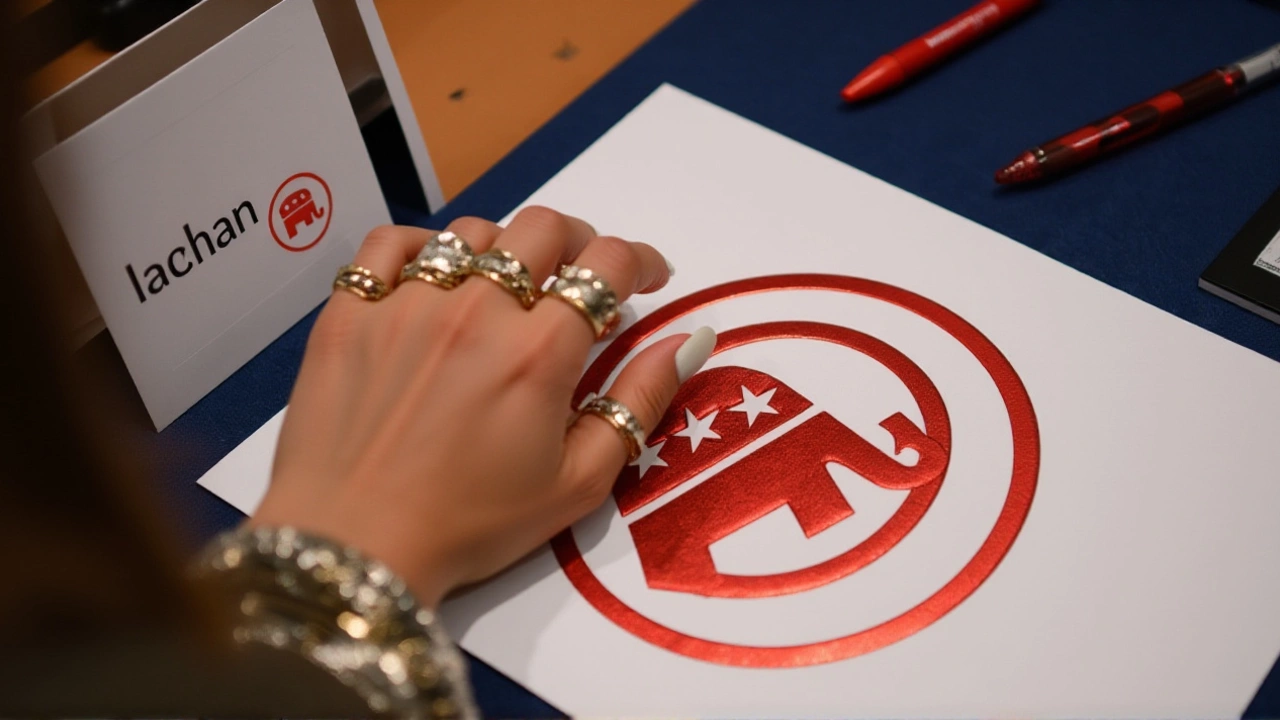NY Young Republicans Dismissed After Racist Telegram Leak

When Peter Giunta, the former chief of staff to Mike Reilly (R‑Staten Island), was linked to a torrent of hate‑filled Telegram chats, the fallout was swift and public.
The leak, published by Politico on Tuesday, October 14, 2025, exposed more than 2,900 pages of messages exchanged between January and mid‑August 2025 among members of the New York State Young Republicans Club and the national youth wing, the Young Republican National Federation. The content ranged from racial slurs to explicit Nazi references, prompting an immediate scramble for damage control across New York’s Republican establishment.
The Leak Revealed: How the Telegram Chats Were Exposed
Investigative reporters at Politico obtained the logs from a source inside the group chat. The platform, Telegram, is prized for its encrypted, self‑destructing messages—features that, in this case, turned into a liability. Over a seven‑and‑a‑half month period, activists posted dozens of messages that referenced gas chambers, celebrated Adolf Hitler, and hurled the N‑word without restraint.
Key excerpts include Giunta’s chilling line, “everyone that votes no is going to the gas chamber,” followed by Joe Maligno replying, “Gas chambers don’t fit the Hitler aesthetic.” Annie Kaykaty added, “I’m ready to watch people burn now…. ” The sheer audacity of these statements shocked observers and forced party leaders onto the defensive.
Inside the Messages: Themes and Extremist Rhetoric
- Racial slurs: repeated use of the N‑word and other derogatory terms.
- Antisemitic jokes: references to gas chambers and Holocaust imagery.
- Homophobic insults: language that vilified LGBTQ+ individuals.
- Nazi glorification: admiration for Hitler and Nazi symbolism.
While some participants tried to frame the banter as “locker‑room talk,” the volume and consistency of the language suggest an entrenched culture of bigotry within the youth organization. The logs also show that discussion of policy was often sidelined for trolling and shock value.
Immediate Fallout: Dismissals and Calls for Resignations
Late on the evening of October 14, Mike Reilly announced via a brief press release that Giunta’s employment as his chief of staff – a $95,000‑a‑year position – was terminated effective immediately. In the same statement, Reilly said, “The conduct revealed in these messages does not reflect the values of my office or the constituents I serve.”
Within hours, high‑profile Republicans – Elise Stefanik (R‑NY‑21), Mike Lawler (R‑NY‑17), and State Senator Robert Ortt (R‑61st District) – issued statements demanding that any members identified in the chats resign from party positions.
“Our party cannot tolerate extremist rhetoric, especially from those who claim to be the next generation of leaders,” Stefanik said in a televised interview. Lawler called the messages “abhorrent and un‑American,” while Ortt vowed to conduct an internal review of the New York Young Republicans’ leadership structure.

Reactions from Republican Leaders and the Media
WNYC’s state politics reporter Jason Beaerman described the scandal as a “mirror reflecting the worst of the online echo chambers that have taken root in youth political groups.” He noted that the Young Republicans limit membership to adults under 40, a factor that makes the hate‑filled discourse especially troubling as these members eye future elected offices.
Other media outlets, including the New York Post and CNN, highlighted the dissonance between the party’s public messaging on inclusion and the private vitriol captured in the chats. Some commentators warned that the scandal could erode voter confidence among suburban swing districts ahead of the 2026 midterms.
Legal and Political Implications Ahead of 2026 Election
While no criminal charges have been filed, legal experts point out that the content may violate New York State Penal Law § 240.31, which addresses aggravated harassment. Attorney Laura Mendelson of the New York Civil Liberties Union said, “If individuals used these messages to threaten or intimidate, prosecutors could have a case, but proving intent is the hurdle.”
Politically, the timing is precarious. The Republican Party in New York is scrambling to present a unified front as the 2026 general election looms on November 4, 2026 – just 11 months away. The scandal threatens to energize Democratic opponents and could force the state GOP to reconsider its candidate recruitment strategy.

Background on New York Young Republicans and Their Role
The New York State Young Republicans Club operates under the umbrella of the Young Republican National Federation, the official youth auxiliary of the Republican National Committee. Headquarters for the national body sit in Alexandria, Virginia, while the state chapter’s office is located at 10 Broad Street, Albany, New York 12207.
Historically, the organization has served as a pipeline for future office‑holders, with alumni including several current state legislators. However, critics argue that the lack of robust oversight has allowed extremist sub‑cultures to flourish, a concern that the recent leak brings into stark relief.
Key Facts
- Leak date: October 14, 2025 (Politico)
- Scope: 2,900 pages of Telegram messages from Jan‑2025 to Aug‑2025
- Primary figures: Peter Giunta, Joe Maligno, Annie Kaykaty
- Immediate action: Giunta fired, resignation calls for other members
- Potential legal angle: Possible violation of NY Penal Law § 240.31
Frequently Asked Questions
How does this scandal affect the New York GOP’s 2026 campaign?
The revelations have forced Republican leaders to distance themselves from the youth wing, potentially alienating moderate voters in swing districts. Campaign donors are demanding stricter vetting, and the party may have to allocate resources to damage‑control rather than outreach, which could hurt fundraising and voter mobilization ahead of the November 2026 election.
Who were the main participants in the hate‑filled Telegram chats?
The logs identify Peter Giunta, former chief of staff to Assemblyman Mike Reilly; Joe Maligno, a local activist; and Annie Kaykaty, a national committee member. Several other unnamed members also contributed, but their identities have not been publicly confirmed.
What legal consequences could the participants face?
While no criminal charges have been filed, prosecutors could explore accusations under New York’s aggravated harassment statutes if the messages are deemed to constitute threats. Civil lawsuits for defamation or hate‑based harassment are also possible, though proving direct harm may be challenging.
What steps are party officials taking to prevent future incidents?
State leaders have announced an internal audit of all youth‑wing communications and pledged to implement stricter vetting for leadership positions. They also plan to provide mandatory anti‑bias training for members, though critics say enforcement will be the true test.
Is there any indication that similar messages exist in other state chapters?
No concrete evidence has surfaced yet, but watchdog groups are urging the national Young Republican organization to disclose any internal investigations. The broader concern is that the culture of encrypted messaging could be hiding comparable conduct elsewhere.